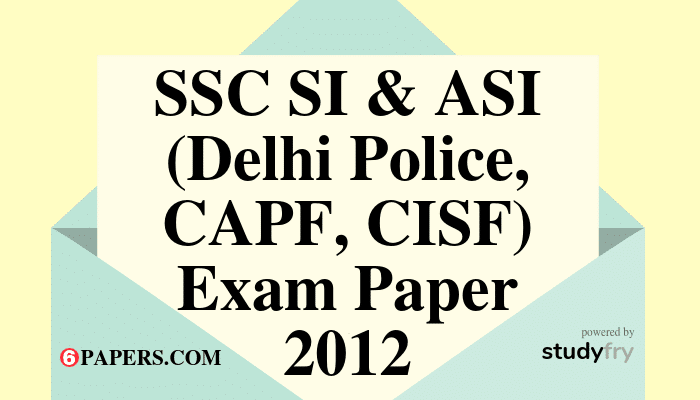141. “Do you know anything about Robots, Sonu?” said Meeta.
A. Meeta asked Sonu if he knew anything about Robots.
B. Meeta asked Sonu whether he knows anything about Robots.
C. Meeta asked Sonu if he know anything about Robots.
D. Meeta asked Sonu if had known anything about Robots.
Show Answer
Hide Answer
142. The teacher said, “Neha, why are you late again today?”
A. The teacher asked Neha why she was late again that day.
B. The teacher asked Neha why was she late again that day.
C. The teacher asked Neha why she was late again today.
D. The teacher asked Neha why she had been late again that day.
Show Answer
Hide Answer
143. The patient asked the doctor what he should normally eat.
A. The patient said, “What should normally eat, doctor?”
B. The patient exclaimed, “What should I normally eat, doctor?”
C. The patient said, “What I should normally eat, doctor?”
D. The patient told, “What should I normally eat, doctor?”
Show Answer
Hide Answer
144. “Leave the room at once Ravi,” he shouted.
A. He requested Ravi to leave the room at once.
B. He ordered Ravi to leave the room at once.
C. He forbade Ravi to leave the room at once.
D. He suggested that Ravi should leave the room at once.
Show Answer
Hide Answer
145. “I have to go into the town today,” Mr. Rao said to the Station Master.
A. Mr. Rao told the Station Master that he would go into the town that day.
B. Mr. Rao told the Station Master that he had to go into the town that day.
C. Mr. Rao advised the Station Master that he had to go into the town that day.
D. Mr. Rao spoke to the Station Master that he had to go into the town that day.
Show Answer
Hide Answer
Directions (Q. 146-170): You have a few passages with some questions following each passage. Read the passages carefully and choose the best answer to each question out of the given alternatives.
PASSAGE – I
(Q. 146-155):
Women have (146) made (147) in the corporate workplace, but certainly not as much as they had (148). We have new laws, rules and (149) relating to women in the workplace, but what we have not changed much is male (150). Women have fallen short in their goals because we (151) the potency of the male need to (152) their power. If we can abide (153) by the laws and rules we create in order to (154) women an equal opportunity in the corporate workplace, then we can still (155) the problems that have denied women their fair share of space in the world.
146. A. seldom
B. perhaps
C. optimistically
D. undoubtedly
Show Answer
Hide Answer
147. A. progress
B. attempts
C. decisions
D. efforts
Show Answer
Hide Answer
148. A. prescribed
B. expected
C. informed
D. encompassed
Show Answer
Hide Answer
149. A. activities
B. problems
C. policies
D. cases
Show Answer
Hide Answer
150. A. patterns
B. achievements
C. population
D. behaviour
Show Answer
Hide Answer
151. A. respect
B. retaliate
C. minimise
D. underestimate
Show Answer
Hide Answer
152. A. maintain
B. evolve
C. diminish
D. absolve
Show Answer
Hide Answer
153. A. occasionally
B. partially
C. excessively
D. scrupulously
Show Answer
Hide Answer
154. A. assure
B. deny
C. share
D. deprive
Show Answer
Hide Answer
155. A. emphasize
B. explore
C. judge
D. overcome
Show Answer
Hide Answer
PASSAGE – II
(Q. 156-165)
Smoking is the biggest preventable (156) to mankind. Many serious (157) including lung-cancer, bronchitis and heart attack are (158) to smoking habits. Smoking in any form, whether cigarette, cigar, pipe, bidi or tobacco chewing, has been (159) as a major (160) factor for heart attack. A recent Soviet study has shown that smoking (161) a man’s life span by 2250 days (over 6 years). The increasing (162) of heart attacks in India, fast (163) among the younger generation, has been largely (164) to smoking habits. Nearly 30 million people in the country are estimated to be (165) of heart diseases.
156. A. measure
B. menace
C. tragedy
D. solace
Show Answer
Hide Answer
157. A. infections
B. diseases
C. ailments
D. injuries
Show Answer
Hide Answer
158. A. caused
B. traced
C. averse
D. prone
Show Answer
Hide Answer
159. A. developed
B. explained
C. attributed
D. identified
Show Answer
Hide Answer
160. A. risk
B. important
C. critical
D. ailing
Show Answer
Hide Answer


Leave a Reply